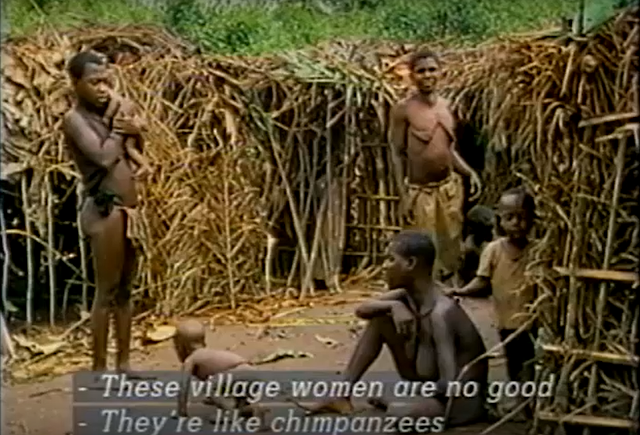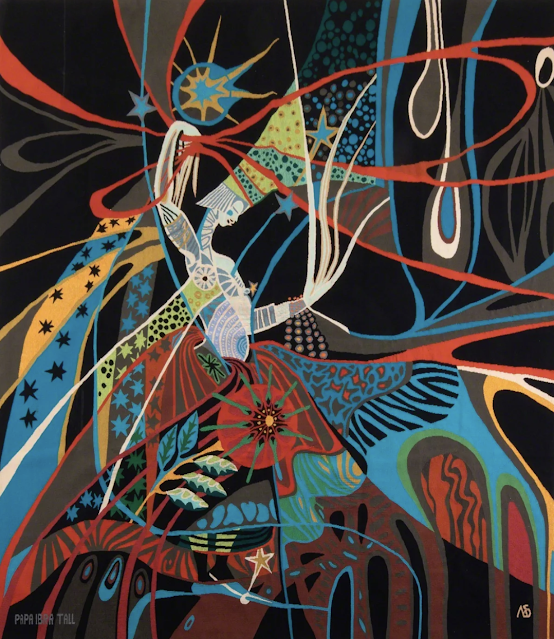Egalitarian Constraints - Thinking about the Grey Pill
I read the recent False Machine post on LBJ and taking the grey pill, which almost got me to post yet another rambling annoyingly multipart Blogger comment, until I remembered that I made this to store that kind of nonsense in the first place. Despite growing up almost literally in the shadow of the LBJ Presidential Library, which I visited frequently on school trips as a callow yoof, I'm not really equipped to deal with that aspect of the post BUT the thoughts toward the end on politicians and power interact in a cool ("cool") way with other books that have been perched in my mind for a while now. Brian Hayden's ethnographic/historical work on feasting and secret societies provides a few conclusions on the development of hierarchies of leadership that seem to converge on ideas adjacent to those Patrick came up with.
The most important parts of his research for our purposes today are those focused on transegalitarian/delayed-return hunter-gatherer societies, originally centered around finding out why evidence of feasting traditions and secret societies-ritual moieties seem to appear surprisingly late in the archeological record and remain absent from modern generalized/immediate-return hunter-gatherer societies. The latter group of hunter-gatherers - like some San groups, the Mbendjele, the Hadza, the Mbuti, several Australian aboriginal peoples, the Aka, or the Penan - "impose economically egalitarian relations through procedures that force sharing on anyone with more than they can immediately consume and so prevent saving and accumulation" (from Lewis' paper on the Mbendjele.) Even reputations for performative generosity were often hard to form, because the aspect of provider obligation-receiver entitlement that was common to many of these groups meant that a big "giver" was just doing the bare minimum expected of them. There are lots of things that go into the ways cultures like these form but two really important ones are that a) many of them occupied marginal territories and b) they couldn't or wouldn't rely on resource acquisition strategies that relied on long-term investment of labor - which is not limited to farming societies by any means. In other words, there's lots of pressures that would select for cultures that are extremely antagonistic to the sort of status-hungry resource hoarding behavior of the kinds of folks who are drawn to structures of power. In contrast, secret societies and feasting are at least in part elements within a number of resource-based strategies (including prestige crafts, high funerary costs, increasingly elaborate marriages, etc) used by ambitious individuals in situations where high surplus and sedentarism loosened the bonds. We’ll get back to that last bit. The thing is, examples of power-driven dark triad weirdos do show up in ethnographic work done on generalized/delayed-return hunter-gatherers as well, it's just that they were rarer and tended to get smacked down when lines were crossed. The most extreme were excluded or straight-up killed in group actions. Excuse the long book excerpt but he says it better than I could:
"...scarcity and fluctuations in resources might induce these hunting and gathering communities to curtail the self-interested behaviors of their members (or at least channel them into avenues other than resource exploitation, e.g., into competition over marriage, ritual knowledge, or kin roles), such egalitarian communities were unlikely to eliminate expressions of self-interest entirely, even with systematic exclusion of individuals who would not refrain from overtly pursuing their own economically based self-interests…It seems that the extreme cases noted here were exceptional and that most people, most of the time, were, in fact, honoring the social norms of behavior, albeit sometimes grudgingly. What emerges from these and other ethnographic or sociological accounts of societies at all levels of complexity is that in all large human populations there is, and undoubtedly always was, a naturally occurring range of variability pertaining to the pursuit of self-interests…Thus, we can expect that at least a few people who were highly motivated and determined to pursue their own self-interests (and change social norms to suit their own goals) occurred in all large populations, even in the most egalitarian cultures, and that they took risks to achieve benefits for themselves. These are the individuals that I refer to as “aggrandizers” or “triple A” personality types: ambitious, abrasive, aggressive, accumulative, aggrandizing people."
As an aside, I think that Hayden's term "aggrandizer" is a good general one to describe the soup of weirdo toxic personalities that are frequently attracted to power that Patrick talks about throughout. Dark triad is fun, but too specific, and also makes me feel a little silly in the shaming way when I say it out loud.
These insights definitely line up with stuff that I am familiar with regarding the hunting-gathering forest peoples of the Congo River Basin sometimes grouped together as "pygmies." These cultures are basically an aggrandizer's hell, even beyond the obvious elements like the lack of an elders' society or chieftainship or other formalized leadership positions to compete for. The sharing culture of the Mbendjele is one part of it:
"Everyone is encouraged to share according to ability, but if you are old, physically or mentally challenged in some way and only rarely contribute, your entitlement is not diminished. You have just as much right as anyone else to demand a share of whatever comes into camp…the principle is that if someone has something that you need just ask them for it; and, as Mbendjele often say, 'Since we have easy hands we just give it.' Mbendjele adults should epitomize this quality by being generous to a fault, so they will give away all that is asked of them, even when this results in their having nothing left for themselves. They contrast this behavior with the 'hard hands' of Bilo villagers."
Those considered the finest orators at the whole-camp meetings that formed the political arena of Mbuti society were those with the ability to speak clearly and simply while conveying the opinions of many, in stark contrast to the complex oratory cultures of neighboring farmers. Loud and obnoxious (to the Mbendjele) men from hierarchical farming villages near forests were/are scornfully referred to as "chimpanzees" who couldn't control their aggressive impulses or "gorillas" who bellow to warn people away from their territory.
"Once, when roared at by a silverback gorilla for camping too close, my Mbendjele companions were so annoyed that they shouted terribly rude insults back. It was unacceptable that the gorilla should claim part of the forest as his own. Similarly, they resent villagers’ claims to own forest and fields and often refer to villagers simply as gorillas because of this likeness."
Hunters had their kills ritually disparaged, with the women butchering them insulting the quality of the meat. An "obsessive" hunter who constantly brought in meat, possibly in search of praise and status, would be made to stop:
"Individuals who hunt a lot will become a target for teasing and mockery, even cursing, if people perceive that the group is eating their production too often. In contrast to models of economic behavior that assume that good producers will get recognition, status, and fame, here it is not the case. They stop hunting for a while rather than be subjected to teasing, gossip, and jealousy."
One Mbendjele man (this account can be found within the edited volume Hunter-Gatherers of the Congo Basin) whose continued hunting despite admonishments eventually led the women STOPPING THE PREPARATION of his kills ALTOGETHER! They would rather let the extra meat rot than indulge the behavior of this guy!! The hunter had to give up and leave the camp entirely because of this meat-strike. This scenario is also a good example of conventional Mbendjele conflict resolution.
Mobility is another really big part of it:
"Like demand-sharing, two key mechanisms that assure egalitarianism are mobility and “avoidance strategy” (Woodburn 1982). Rather than confront someone who is trying to oblige you to do something, or seeks to exert authority over you, or with whom you have a dispute, move away from them. Because adults do not depend on others for access to vital resources, they can simply and easily move away. If mobility is a leveling mechanism, it depends on this absence of dependency."
This, in turn, relies on the lack of long-term labor investment to reinforce it in the same way that demand-sharing is reinforced by the marginality of the environment - you can't waltz away from the old camp as easily if you have crops to harvest. Based on stuff like the above just within my own spheres of interest, I think Hayden's take makes a lot of sense. Delayed-return resource strategies and consistent surpluses allow for new forms of organizational complexity but simultaneously destroy the conditions which select for the extreme hostility to aggrandizing behavior that underpins the egalitarianism of immediate-return generalized hunter-gatherers. I wonder if this connects to some of the talk about how our abilities to form relationships and our network modeling skills don't really scale up very well. The average Mbuti camp is around 50-150 people.
I'm not sure if using politics as a cage really works as a straitjacket on aggrandizing tendencies, especially when compared to the remarkably consistent success that folks like the autochthons of Central Africa's forests have seen in curbing them. Honestly, if I was intentionally trying to design a system where aggrandizing types were funneled right to the top of every possible power structure, I don't think I could do better than the one we live in - Moloch/Zeus' world. It's worth mentioning that the Central African forest peoples have suffered throughout the arrival of a modern logic of state in increasingly vicious stages, culminating in multiple genocides.
Anyways, I don't have any concluding program or unique answers to offer here for The Riddle of Society™, this was just an effort to approach some of the ideas explored in Patrick's post from a different angle. I'm definitely sadder than when I started, so maybe there's something to that grey pill.








Comments
Post a Comment